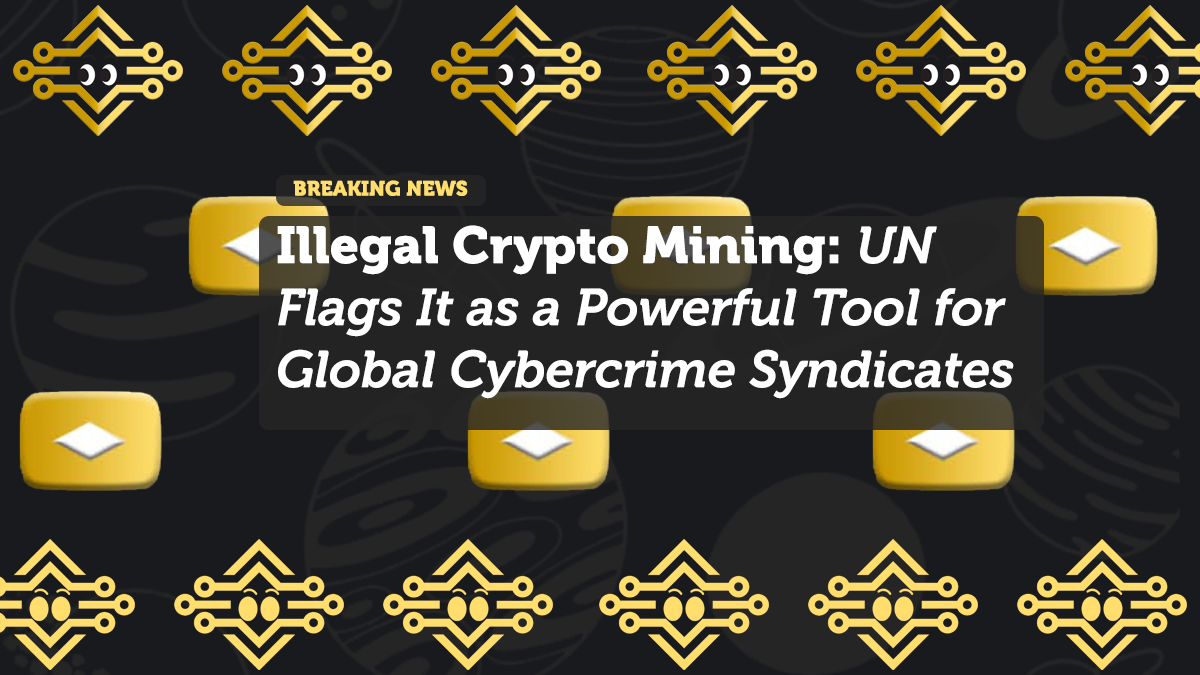
Illegal Crypto Mining: UN Flags It as a Powerful Tool for Global Cybercrime Syndicates
A bombshell 2025 report from the United Nations Office on Drugs and Crime (UNODC) lays bare a disturbing trend: illegal crypto mining is now a global engine of transnational organized crime.
The report, titled “Inflection Point: Global Implications of Scam Centres, Underground Banking and Illicit Online Marketplaces in Southeast Asia”, reveals that East and Southeast Asian crime networks are no longer just operating regionally — they’re spreading into Africa, the Middle East, and the Pacific Islands.
How Criminal Groups Use Crypto to Launder Billions
The UNODC describes illegal crypto mining as a “powerful tool” for laundering money. These syndicates are:
- Setting up off-grid mining operations in lawless zones
- Stealing electricity from vulnerable infrastructure
- Creating “clean” coins without detection
- Using stablecoins and decentralized exchanges to move and mix funds
One notorious example is Huione Guarantee, recently rebranded as Haowang. Since 2021, this Cambodia-based platform has processed over $24 billion in crypto, according to the report.
Inside the Huione Empire: Scams, Stablecoins, and Telegram
Huione has become a central hub for laundering tools, fake identities, and scam services — all conveniently offered through Telegram and other encrypted messaging apps.
It has launched:
- Its own stablecoin
- A blockchain platform
- Crypto exchange
- Online gambling products to avoid regulatory scrutiny
“It spreads like a cancer,” said Benedikt Hofmann, UNODC Acting Regional Representative. “Authorities treat it in one area, but the roots never disappear—they simply migrate.”
Crypto’s Global Expansion: Why Weak States Are a Target
From Libya to Zambia and Tonga, these groups set up shop in regions where oversight is weak. A lack of regulation and cheap electricity make these countries easy targets.
Table: Top 5 Countries Targeted by Criminal Crypto Syndicates
| Country | Risk Factor | Activity Type |
|---|---|---|
| Libya | Low electricity cost | Off-grid mining, theft |
| Zambia | Weak crypto oversight | Exchange laundering |
| Nigeria | High youth unemployment | Scam center hubs |
| Tonga | Poor internet regulation | Identity theft tools |
| Cambodia | Lax enforcement | HQ for Huione scams |
Energy Theft and Economic Fallout
The effects of illegal crypto mining go beyond financial crimes.
In Libya, where electricity is subsidized, entire cities have experienced blackouts due to off-grid mining. Officials blame crypto rigs hidden in militia-run warehouses for draining power grids.
Implications: What This Means for Global Security
The professionalization of these cybercrime operations is clear. These aren’t basement hackers — they’re full-fledged criminal ecosystems.
Authorities are now warning that:
- Cybercrime is no longer local
- Crypto regulation must go global
- Weak jurisdictions are being exploited
UNODC officials believe that the window for containment is closing fast.
Recommendations for Lawmakers
Governments must urgently act. According to the report, key policy recommendations include:
- Mandatory KYC on all crypto exchanges
- Stronger cross-border financial monitoring
- Crackdowns on stablecoins with anonymous features
- Digital asset transparency tools
Final Thoughts: Is Crypto Crime the New Global Threat?
As crypto continues to evolve, so does its use by organized crime. The UN’s report highlights a clear trend: without coordinated international regulation, crypto crime will continue to expand into new regions and industries.
If left unchecked, it won’t just be a financial threat — it’ll become a national security issue across continents.
















